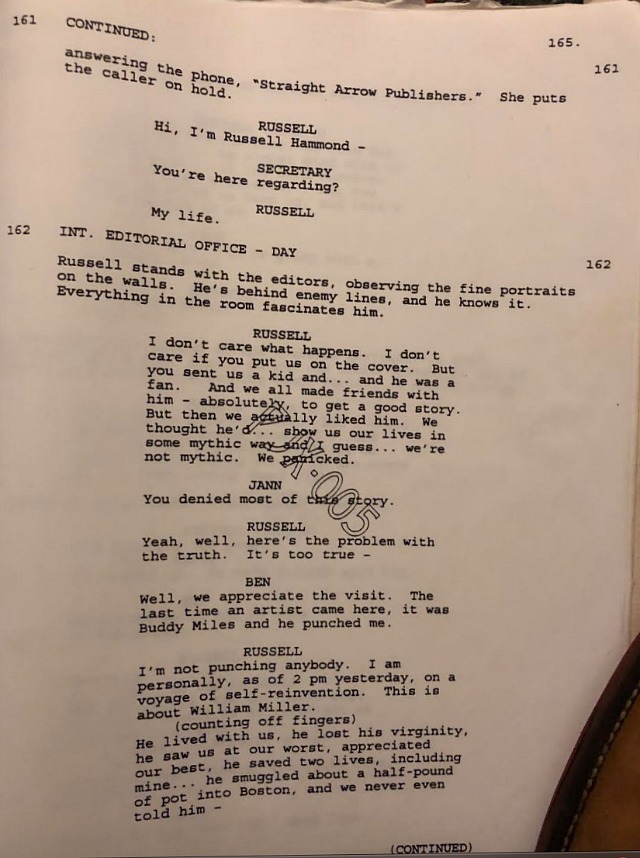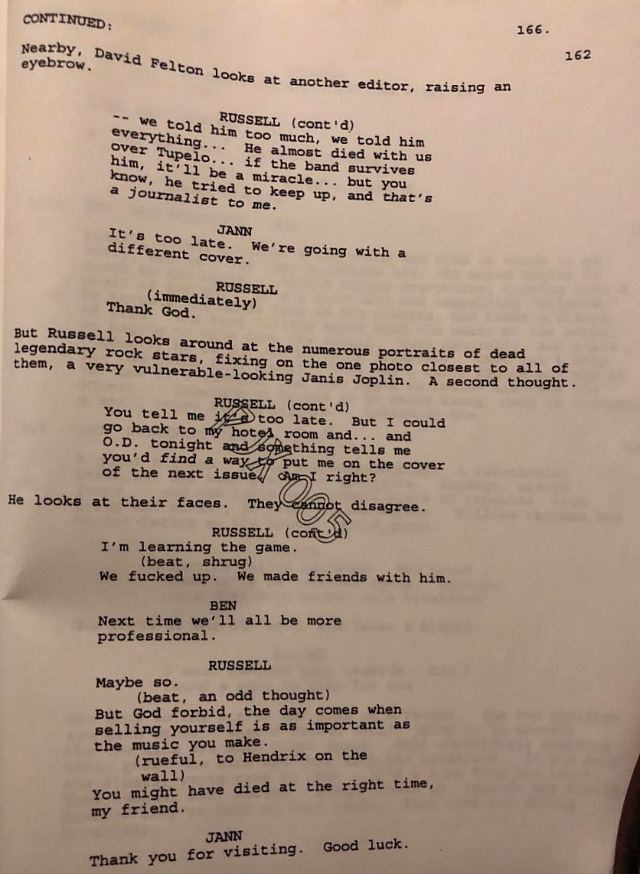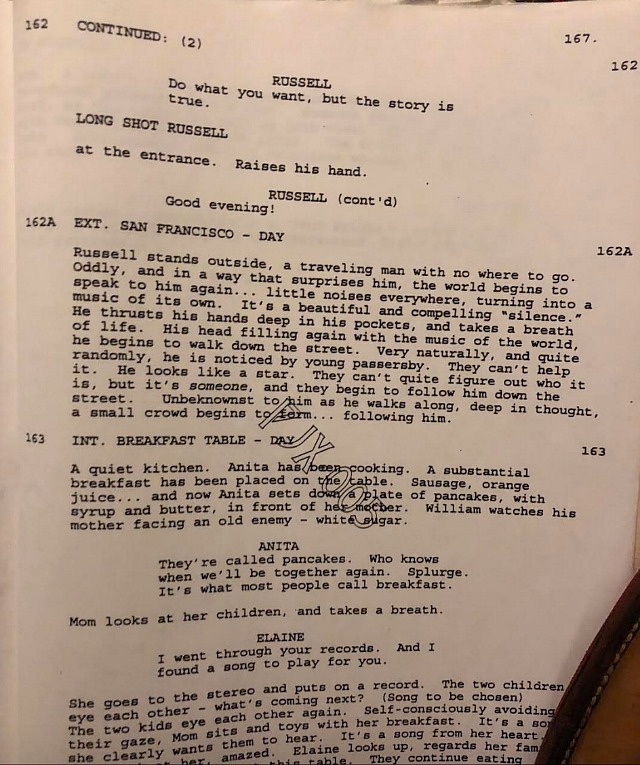Almost Famous, Cameron Crowe‘s finest and most personal film, opened 18 and 1/3 years ago. I remain a huge fan, especially of the 162-minute director’s cut “bootleg” version that came out on Bluray in 2011.
Crowe’s initial theatrical version ran 122 minutes, in part because Dreamworks producer Walter Parkes kept insisting on “shorter, shorter, shorter.” It felt a bit constricted, didn’t really breathe. The 162-minute Bluray is the definitive version.
During production I got hold of a 1998 copy of Crowe’s script. It was 168 pages long, and I fell in love with it straight off. Almost all of it was shot and most of it became part of the final cut. Unfortunately my favorite scene (which is posted after the jump) wasn’t shot or was shot and never used.
Almost Famous is a largely autobiographical saga about a teenaged, San Diego-residing Crowe stand-in (called William Miller in the script and played by Patrick Fugit) landing a Rolling Stone assignment to profile an up-and-coming band called Stillwater, which had a star performer called Russell Hammond (Billy Crudup).
William hangs out with the band, gets into all kinds of wild-ass adventures, gets to know the Stillwater groupies and so on. After a false start he eventually turns in an honestly written article to Rolling Stone.
Russell and the band members are alarmed when the fact-checker calls. Fearful of being portrayed as insecure dipshits, they lie by insisting that Miller’s account is fiction. The article is killed, and William returns home in a state of defeat and total exhaustion.
The final graph of the Wiki synopsis: “Russell feels guilty for betraying William. He calls Penny Lane (Kate Hudson) and wants to meet with her, but she tricks him by giving him William’s address. He arrives and finds himself face-to-face with William’s mother (Frances McDormand), who scolds him for his behavior. Russell apologizes to William and finally gives him an interview.
Russell, we learn, has verified William’s article to Rolling Stone, which runs it as a cover feature. Penny fulfills her long-standing fantasy to go to Morocco. Stillwater again tours only by bus.”
The scene that I loved so much shows a guilt-stricken Russell visiting the offices of Rolling Stone and admitting to Jann Wenner, Ben Fong Torres and David Felton that William’s article is an honest account. I’ve had this script in a file cabinet for 20 years, and this is the first time I’ve posted these now-yellowed pages:



The best moment happens when the Rolling Stone guys tell Hammond that they appreciate his honesty, but he’s arrived too late and they’re running another cover story. Hammond initially says “thank God” after hearing this, but then he says, “You tell me it’s too late, but something tells me if I were to go back to my hotel room and O.D., you’d find a way to put me on the cover of the next issue…right?”
